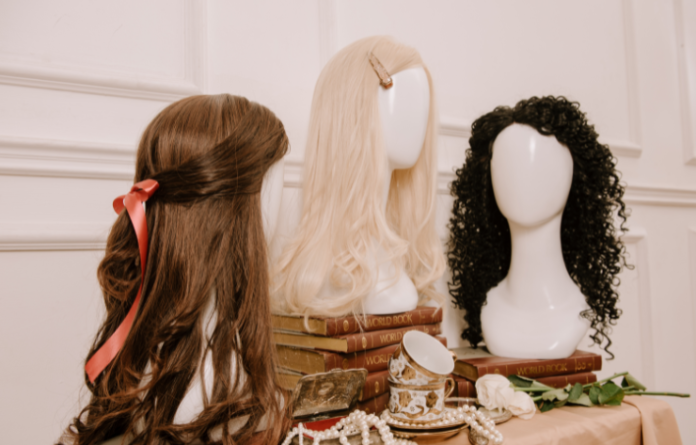In the heart of Jewish tradition lies a profound sense of connection to cultural and religious practices. One such practice is the wearing of Jewish wigs, also known as sheitels, by married women in Orthodox and Hasidic Jewish communities. These wigs, which have evolved in style and significance over centuries, are far more than simple head coverings; they are symbols of modesty, identity, and adherence to Jewish law.
What Are Jewish Wigs?
Jewish wigs, known as sheitels, are worn by some married Jewish women as part of the religious practice of modesty, called tzniut. These wigs cover their natural hair in public, symbolizing respect for their marriage and adherence to Jewish law.
Why Is Wearing A Jewish Wig Important?
For many Jewish women, wearing a sheitel is an important way to honor their religious commitments while maintaining a connection to their community and faith. It is a meaningful practice that combines tradition with personal expression and modesty, playing a key role in their daily lives.
Why Do Jewish Women Wear Wigs?
Jewish women wear wigs to follow the religious practice of modesty (tzniut). After marriage, they cover their hair to honor their commitment to their husbands and follow Jewish law, which requires married women to dress modestly in public. Wigs provide a way to fulfill this religious obligation while still looking presentable.
How Are Jewish Wigs Made?
Jewish wigs can be made from either synthetic fibers or human hair. Synthetic wigs are usually more affordable and easier to maintain, but they may not look as natural as human hair wigs. Human hair wigs, on the other hand, are more realistic and can be styled like natural hair, but they are often more expensive and require more care.
What Are The Different Types Of Jewish Wigs?
1. Synthetic Wigs:
These are made from artificial fibers and are usually less expensive. They require less maintenance and hold their shape well, but they might not look as natural as human hair wigs.
2. Human Hair Wigs:
These are made from real human hair, giving them a more natural appearance. They can be styled and colored like regular hair but are more expensive and require more care.
How Do Jewish Wigs Reflect Identity?
Jewish wigs, or sheitels, are more than just head coverings. They reflect a woman’s religious and cultural identity. The choice of style, color, and type of wig allows Jewish women to express their individuality while still adhering to the rules of modesty. For many, wearing a wig is a powerful way to connect with their faith and community.
How To Care For A Jewish Wig?
- Washing: Wigs should be washed regularly but not too often. Use wig-friendly shampoos and conditioners to keep them in good shape.
- Styling: Be careful with heat styling, especially with synthetic wigs. Use heat protectant sprays before styling human hair wigs..
- Storage: Store your wig on a wig stand or in a protective bag when not in use to prevent tangling and maintain its shape.
What Are The Modern Trends In Jewish Wigs?
In recent years, Jewish wigs have evolved with modern trends. New wig-making techniques, like lace fronts and monofilament caps, make wigs look more realistic. Customization has also become popular, with women choosing wigs tailored to their preferences, such as specific cuts, colors, and textures.
Cultural Variations In Jewish Wigs Use:
Jewish wig use varies across communities. In Orthodox and Hasidic groups, wigs are worn daily, often styled modestly. In more modern communities, women may wear fashionable wigs or alternate between wigs, hats, and scarves, reflecting differing interpretations of modesty. Regional customs and personal preferences also influence wig style and use.
The Religious Debate Surrounding Wigs:
The religious debate surrounding wigs centers on whether wearing wigs fulfills the Jewish requirement for modesty. Some authorities argue that wigs are an acceptable form of hair covering, as they serve the purpose of concealing a woman’s natural hair. Others believe that wigs, especially those made from human hair and styled fashionably, may contradict the modesty intent, as they can appear more attractive than natural hair.
Conclusion:
Jewish wigs, or sheitels, are important for many married Jewish women as part of religious modesty. They allow women to cover their hair while still looking stylish. Whether made from synthetic or human hair, wigs help women follow tradition and express their individuality. By wearing wigs, Jewish women balance their faith with modern fashion, reflecting both their beliefs and personal style.



I need a post on your site
Hello,
Thank you for reaching out and expressing interest in guest posting opportunities on Chancerne.co.uk.
Our website is dedicated to providing high-quality content and a robust platform for contributors. We are pleased to offer competitive pricing for guest posts to help you reach your target audience effectively.
General Pricing:
Standard Guest Post: $80 per post
General Link Insertion: 60$
Casino/Crypto/CBD Post Price is 250$
Includes a do-follow link
We accept payments via PayPal for your convenience.
Please feel free to reply to this email if you have any questions or if you’d like to proceed with booking your guest post. Stay away from us time wasters
Looking forward to collaborating with you.
Best regards,
Chancerne.co.uk
live:.cid.d9447e9343eed9bf